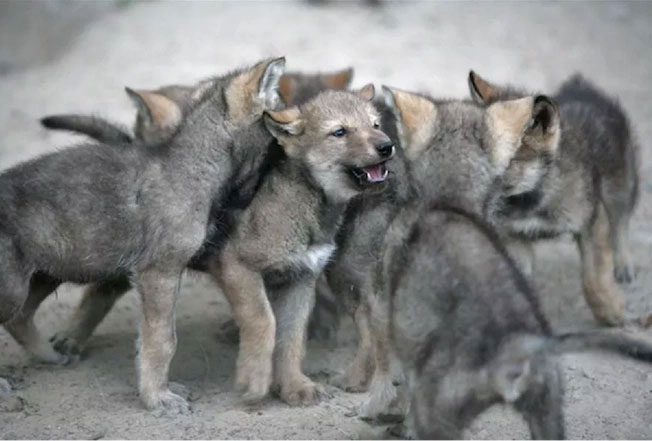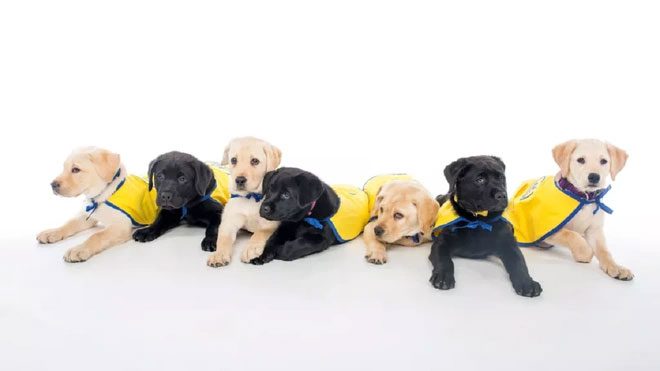A new study has found that puppies have a knack for understanding human gestures.
Puppies are born with a innate ability to read human gestures, such as pointing to food, which they can comprehend even without specific training.

Wolf puppies from the Minnesota Wildlife Science Center, where the experiment took place.
“Dogs are born with this innate ability to understand that we are communicating with them and that we are trying to cooperate with them,” said the lead author of the study, Hannah Salomons, a PhD candidate in social cognition at Duke University in North Carolina, in a statement.
Scientists stated that this finding, published on Monday (July 12) in the journal Current Biology, supports the idea that the domestication of dogs from wolves has altered the way dogs think.
“This study really reinforces the evidence that the social cognition of dogs is a product of the domestication process,” said Brian Hare, a professor of evolutionary anthropology at Duke University, in the statement.
For the study, researchers compared the cognitive skills of 44 puppies and 37 wolf puppies aged between 5 to 18 weeks. The wolf puppies were born and raised at the Minnesota Wildlife Science Center, where they had almost constant exposure to humans even while sleeping.
In contrast, the puppies stayed with their mother until they were 6 weeks old and with their littermates until they were 8 weeks old. During this time, they had only brief interactions with humans.
After eight weeks, the puppies moved in with human families, although most of the puppies in the study were tested for their cognitive skills before being adopted.

Puppies understand the gestures humans make towards them.
In a cognitive test, researchers hid food in one of two bowls, then pointed to and looked at the bowl containing the food to indicate its location.
The results showed that puppies were able to pick up on human signals as they went straight to the bowl of food we had prepared. Many puppies followed this cue on the first try without any specific training.
In another test, the dogs were given a tightly sealed food container that they could not open. However, wolf puppies often tried to open the container themselves, while puppies spent more time making eye contact with humans to seek help.
The study also indicated that puppies had a 30 times higher likelihood of approaching strangers compared to wolf puppies, even though the puppies had relatively little exposure to humans in their early days.
“With the puppies we worked with, if you enter their pen, they will gather around and want to climb on you and lick your face, while most wolf puppies run into a corner and hide,” Salomons said.
“The Domestication Hypothesis” suggests that the wolf ancestors of dogs were selected for their friendliness and appeal to humans, and over many generations, these animals passed on their cooperative genes, ultimately becoming the domesticated dogs we know today.
The researchers concluded: “Once attraction replaces fear, inherited social skills are applied to humans in a new way and develop early.”





















































